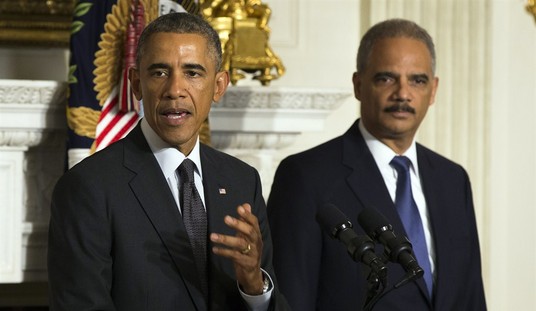It was December when a local news director penned a letter that went viral. It was an open letter to journalists “at the end of the toughest year of our careers.” “If I had told you in January you’d produce from home, track from your closet, master Zoom, and anchor from your living rooms this year,” wrote Julie Wolfe, “you would have laughed. And then cried.”
Journalists have been crying for quite a while now, especially with a president in office calling their work “fake news,” but even with President Trump gone, reporters are working through a news cycle that is “traumatizing.” Michael Tracey explains:
"Traumatized" Journalists Are Now Declaring Themselves A "Marginalized" Group https://t.co/e1akTbaTd7
— Michael Tracey (@mtracey) April 2, 2021
This is a real proposal in @PENamerica's new blockbuster Report outlining sweeping recommendations to aid allegedly traumatized journalists pic.twitter.com/P5fntB1MCf
— Michael Tracey (@mtracey) April 2, 2021
PEN America recommends an “emergency hotline … providing personalized, trauma-informed support in real-time.”
FYI: The reason I keep talking about this "therapeutic trauma jargon" stuff is because it's so rapidly infiltrating every media/activism institution and being confided into policy + mores that affect society writ large
— Michael Tracey (@mtracey) April 2, 2021
My favorite part of researching this post might've been discovering that journalist Talia Lavin (a white Harvard grad) recently declared herself "marginalized"
— Michael Tracey (@mtracey) April 2, 2021
Here's an article in the Columbia Journalism Review all about how "traumatized" professional adult journalists supposedly are by "the brutality of the news cycle," as well as ongoing "anti-press hostility" and "online abuse." Such melodramatic crybabieshttps://t.co/OHSV03mKWp
— Michael Tracey (@mtracey) April 3, 2021
It is a brutal news cycle, what with the Derek Chauvin trial retraumatizing everyone all over again. And check out the way the Columbia Journalism Review’s Jon Allsop describes three recent mass shootings; see if you can spot the difference: “It’s only been two and a half weeks since a white gunman killed eight people, six of them Asian women, at spas in the Atlanta area,” and “Last week, a gunman killed ten people at a supermarket in Boulder, Colorado. This week, a gunman killed four people, including a nine-year-old, at an office complex in Orange County, California.” Funny how only the Atlanta shooter has a race — and that why no one trusts the media these days.
In addition to the bleakness of the news, many journalists—and women and reporters of color, in particular—are under direct attack. Trump may be gone from the White House, but the anti-press hostility he stoked lives on, and online abuse seems only to have gotten worse in recent months.
…
The brutality of the news cycle, abuse, and the general bad state of the media industry are putting journalists under intense strain. As a result, many talented people, and especially those from oppressed groups, have been prevented from doing their best work—or have decided to quit their jobs altogether.
They can always build solar panels.
Nieman Lab reposted the @lyzl Substack post in which she reveals spending 90% of her life crying because of "online harassment," and @chick_in_kiev declares herself a member of a "marginalized" group. Most media institutions are embracing this mentality https://t.co/ctzLOMUkVH
— Michael Tracey (@mtracey) April 3, 2021
— ʙɪɢ ᴡɪʟʟ? (@WillontheRadio) April 2, 2021
There's been journalists who've risked life and limb to report from actual war zones but I guess that means nothing to the ones who think that disagreement hurts their feelings.
— ?Timothy?????ζ⃠ (@AcrobatMission) April 2, 2021
This is as funny as it is terrifying.
— John (@C_BoddickerOCP) April 2, 2021
— workinglate (@Workinglate) April 3, 2021
Being "marginalized" or a "victim" is how one now accrues power.
— David Meridian (@DavidMeridian) April 3, 2021
No one is forced into journalism.
— Open Water (@OpenWaterNB) April 2, 2021
The marginalized #journalists are the few who are not glorified stenographers for their employer.
— kppotatoes (@kppotatoes) April 3, 2021
@ggreenwald is gonna love this. He’s posted so many valid and thorough criticisms of so much bad journalism to which the journalists cry harassment and abuse.
— Neil Hooey (@nhooey) April 3, 2021
Ivy league educated journos from "1%" families are the most silenced people in the world, pushed to the margins of society and w/ no influence on the culture. Right now as you tweet this, journalists are suffering from trauma! Something. Must. Be. Done.
— Day of Reckoning (@allidoisgetpaid) April 2, 2021
It’s repulsive how despicable the profession has become succumbing to victimhood and activism. Try explaining this to the families of journalists like Michael Kelly.
— Craig T. Nelson (@Frankie5_Angels) April 2, 2021
Trauma is difficult to overcome. Especially so when its caused by something imaginary. Tough road ahead for these folks.
— The Trenchant 'Stickman' of Satire (@PineForestCmpr) April 2, 2021
#pray4traumatizedjournalists ???
— Christian Picaia – 5% ⛅ (@CPicaia) April 2, 2021
Awwww, poor over-privileged white girls with a public platform larger than 90% of regular Americans complain they're "marginalized" when people complain about their horrible research skills. And in most of their articles they accuse men of being fragile. Okay then.
— WokeFather (@RyanWokeFather) April 2, 2021
Many journalists have had a bad time lately. I think we should support them. Maybe teaching them to CODE so they can change jobs. ??
— whip_star (@whipstar2) April 3, 2021
OMG The internet is being mean to me button!!! How about you bonehead journalists actually do some research about what you write about instead of taking lies at face value and running with them to push your own narrative!!
— Samuel Anderson (@Gambacha1186) April 3, 2021
For those who consider themselves as gutsy "firefighters", this is a pretty weak bunch hiding behind victimhood.
They can dish it out, but can't take it.
— Robert J Jacobsen (@RobertJJacobsen) April 3, 2021
It's almost like they all went to the same colleges and joined the same critical theory cult that teaches them to assume the worst intentions in people and play victim to gain power.
— WY Try (@wy_try) April 2, 2021
I don’t know if there are even a handful of actual journalists left in this country.
— bebekell (@bebekell20) April 2, 2021
Maybe they need to stop being soft? Just saying.
— Up The Republicans (@UpTheRA03982085) April 3, 2021
“Journalist-Americans” a new victim group.
— Zersetzung1984 (@zersetzung1984) April 2, 2021
It’s a phenomenon that’s caused by the type of women that go into journalism, which are victim narrative-minded. Writing themselves into their stories of oppression is only natural for them.
— Christopher (@EnoughHeard) April 2, 2021
Maybe if journalists just stopped pretending and called themselves what they truly are, activists, they wouldn’t get “attacked” so often. Claiming to be unbiased while blatantly shilling for a side is why ppl mock them.
— Unhyphenated-Neanderthal (@HappyCycler) April 3, 2021
Yet they never consider the trauma and abuse they cause ? Credibility lies in their own hands
No pity from me— Gipfel (@Gipfel18) April 2, 2021
Bruce Shapiro, who leads the Dart Center for Journalism and Trauma at Columbia, offered self-care tips for reporters who “feel emotional distress covering the violence and abuse their communities face”; they include putting your phone away, getting help if you need it, and “pacing your trauma load.”
Yes, put your phones away.
Related:
‘Hilariously absurd’! NY Times’ statement slamming Tucker Carlson for ‘attacking a journalist’ like Taylor Lorenz gets shredded https://t.co/RuO9PamdUj
— Twitchy Team (@TwitchyTeam) March 10, 2021
























Join the conversation as a VIP Member